Monday a caller reported having found a downed baby red tail, probably unnested in Sunday night’s storms. Wrong time of year for red tails to be nesting, so I suspected late-breeding red shoulders. When she arrived with the bird it was a nestling Cooper’s hawk. Oh joy…if any hawk makes a rehabber cringe, it’s a pissy, psychotic Coop—and yeah, the babies are just as bad as the adults.
ANYway…his intake exam revealed a beauty of a shiner on his left eye and some bruising under his left wing, both most likely sustained when he fell from the nest. Aside from that, he was textbook Coop. And because his finder had sought help immediately, he suffered no lasting damage or nutritional deficiencies. Today he’s started attempting to feed himself, to this rehabber’s delight. Fighting with a Coop to get him fed ain’t on my Top 10 list of favorite things to do!
Initially, I’d planned to euthanize as soon as the poor bird had experienced a couple of decent meals comprised of proper food. But he went from feet dangling uselessly to at least tucking them against his body when I picked him up to feed him. And consultations with Kathryn Dudeck of Chattahoochee Nature Center and Steve Hicks of Bubba & Friends Raptor Rehab led us all to the conclusion that maybe giving him the weekend wasn’t a bad idea—and he seemed to be making promising progress: After he’d been soaked in warm water to remove as much of the caked-on poop as possible, he was flaring and spreading his tail feathers. Saturday morning he’d sliced (pooped) a wee bit outside the nest, cast a small pellet, and was moving his tail feathers more. And the swelling and redness in his cloaca had diminished considerably after just one night in a clean nest. Another soak Saturday night removed even more of the caked-on waste, and there was slightly more motion in his legs this morning. Sadly, a week of crap nutrition was more than his little body could take, and he died sometime after his first feeding this morning. He was sprawled in his nest when I went in to give him his second feeding.
Could his fractured pelvis have been treated when it was a fresh fracture? We’ll never know now. In a young bird whose body is still growing, a week of improper caging, diet and nesting is an eternity of improper healing and malnutrition, as well. Pelvic fractures can frequently be successfully treated. This poor fellow had no chance, though, because some fool decided it would be fun to try and raise an injured baby with no clue what he was doing.
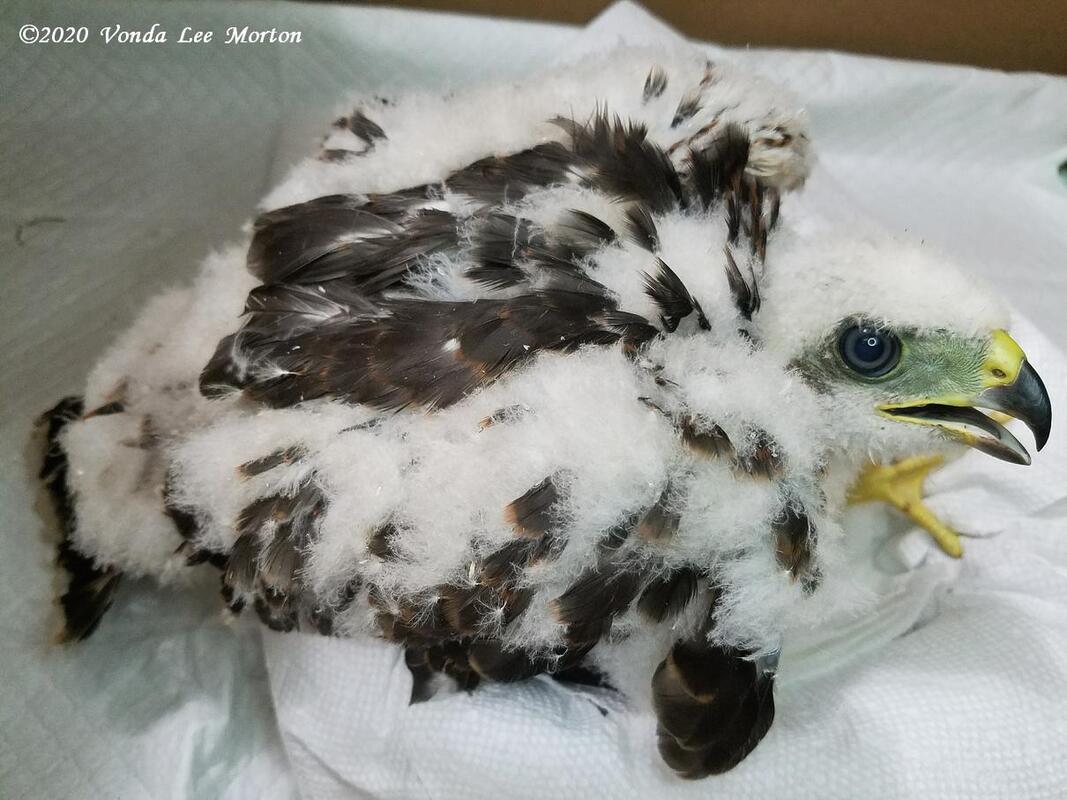
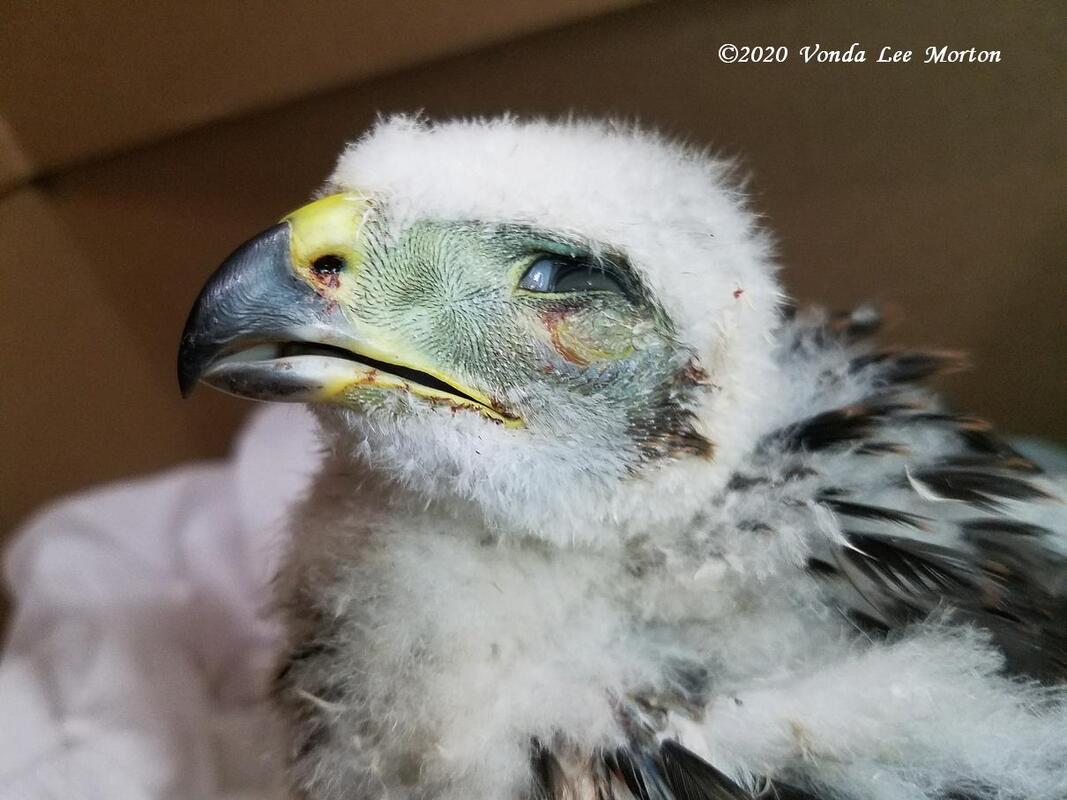
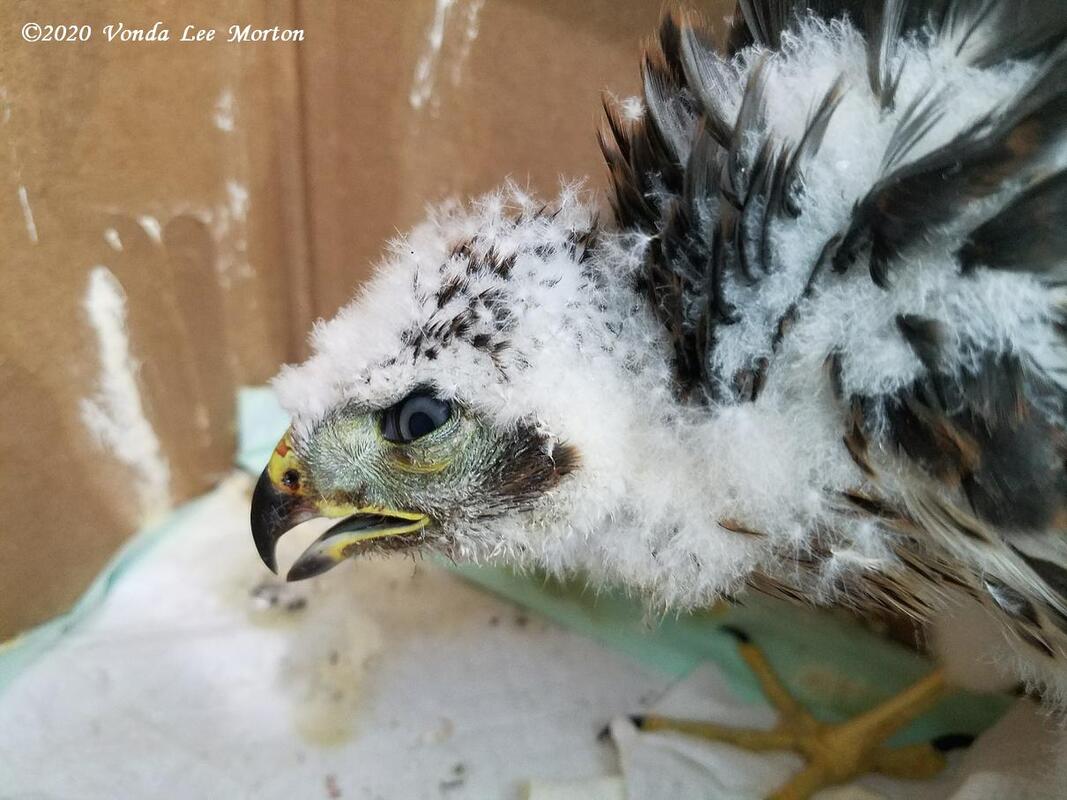
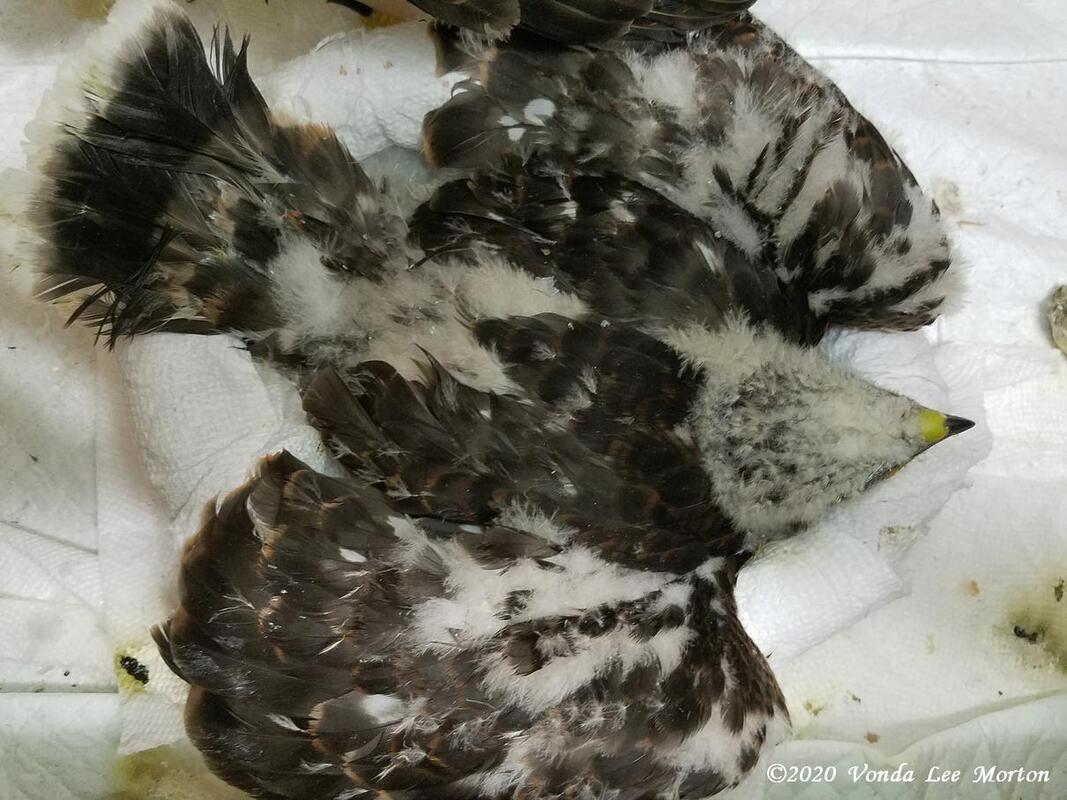
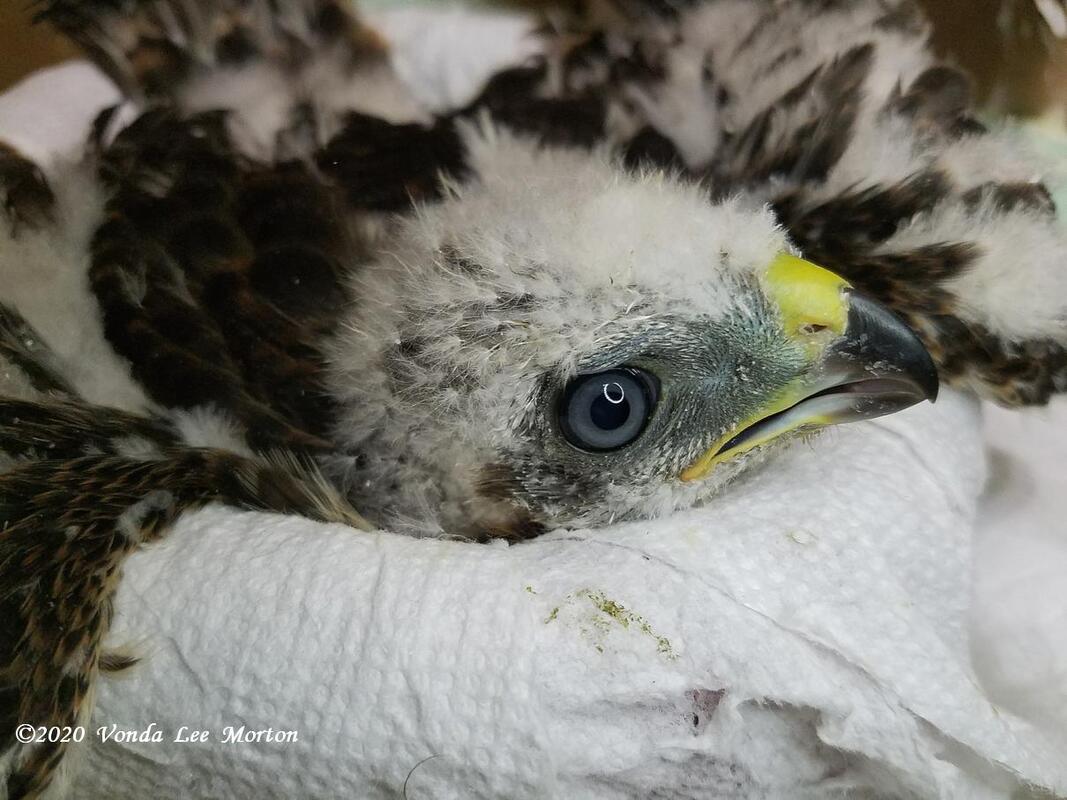
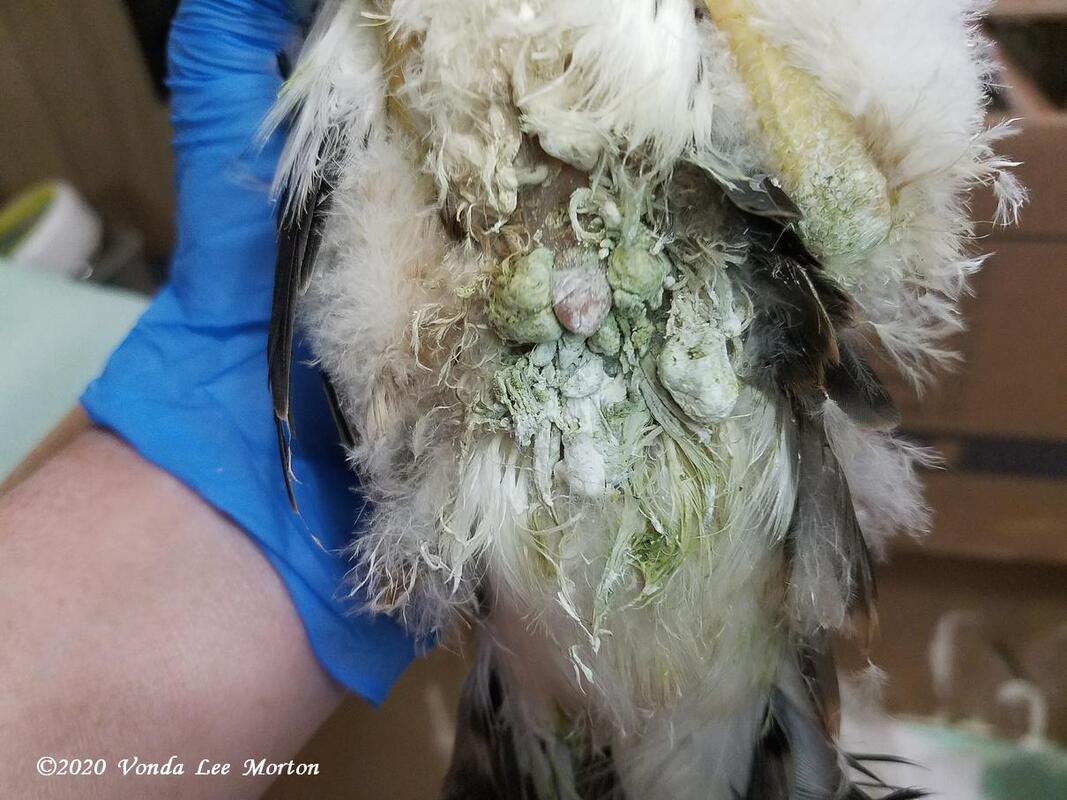
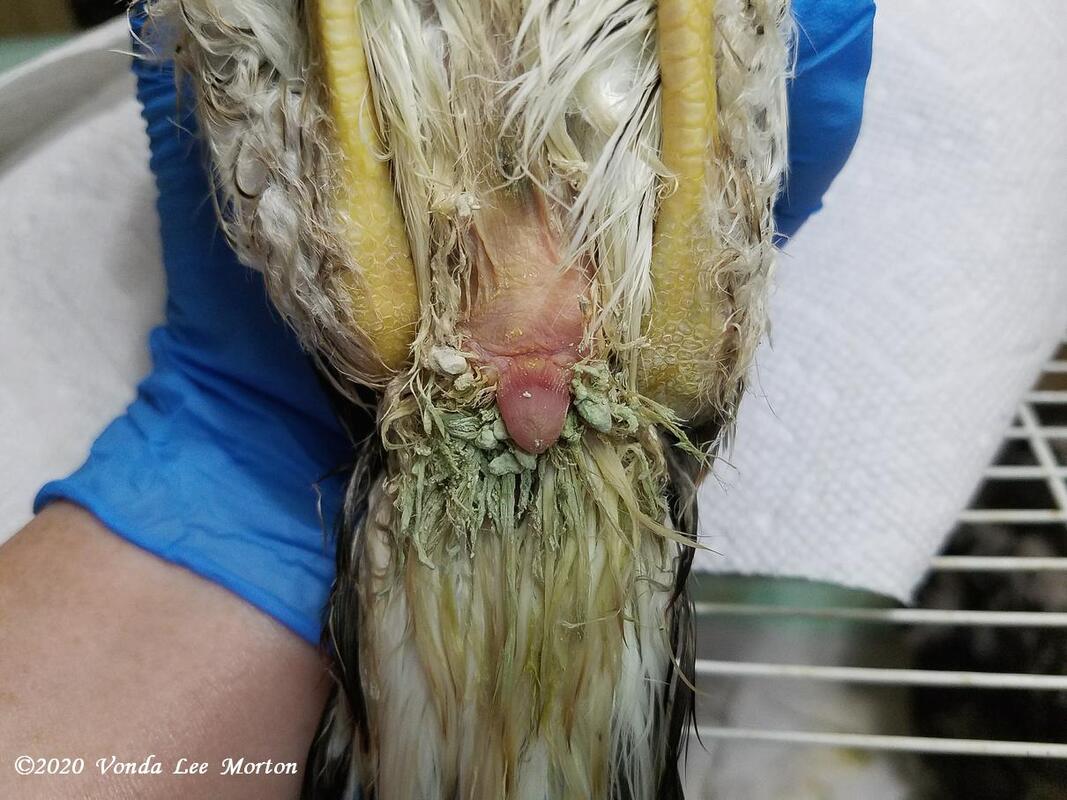
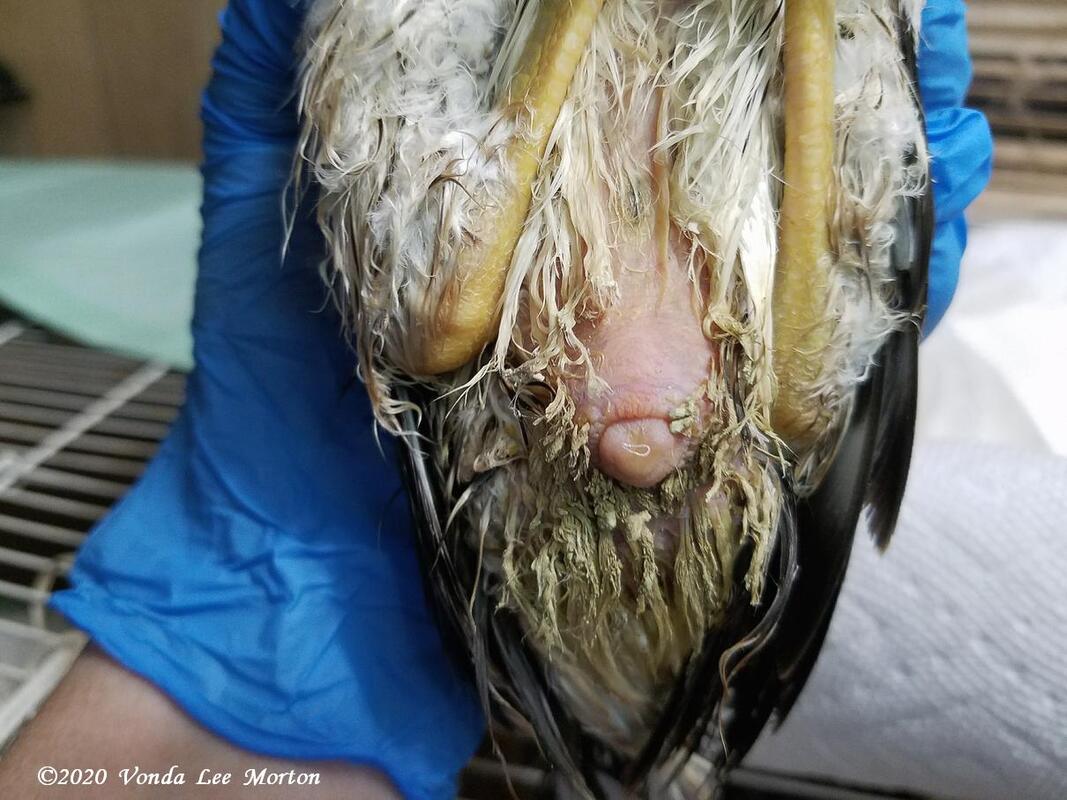
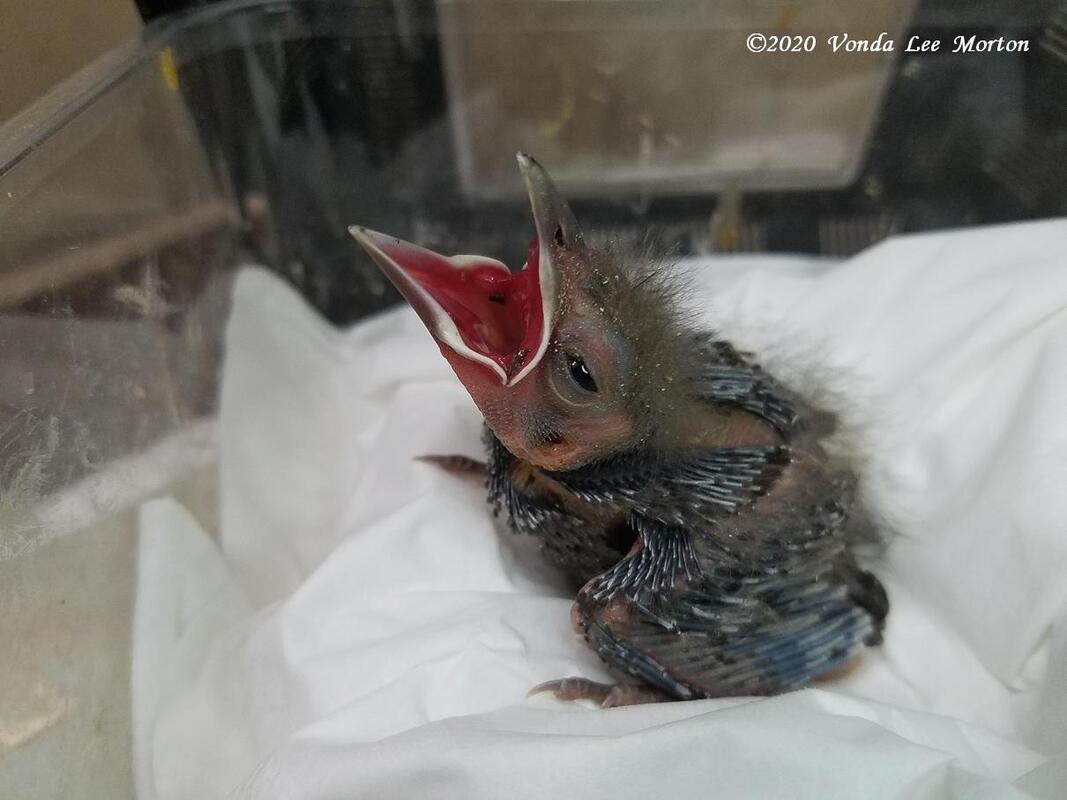
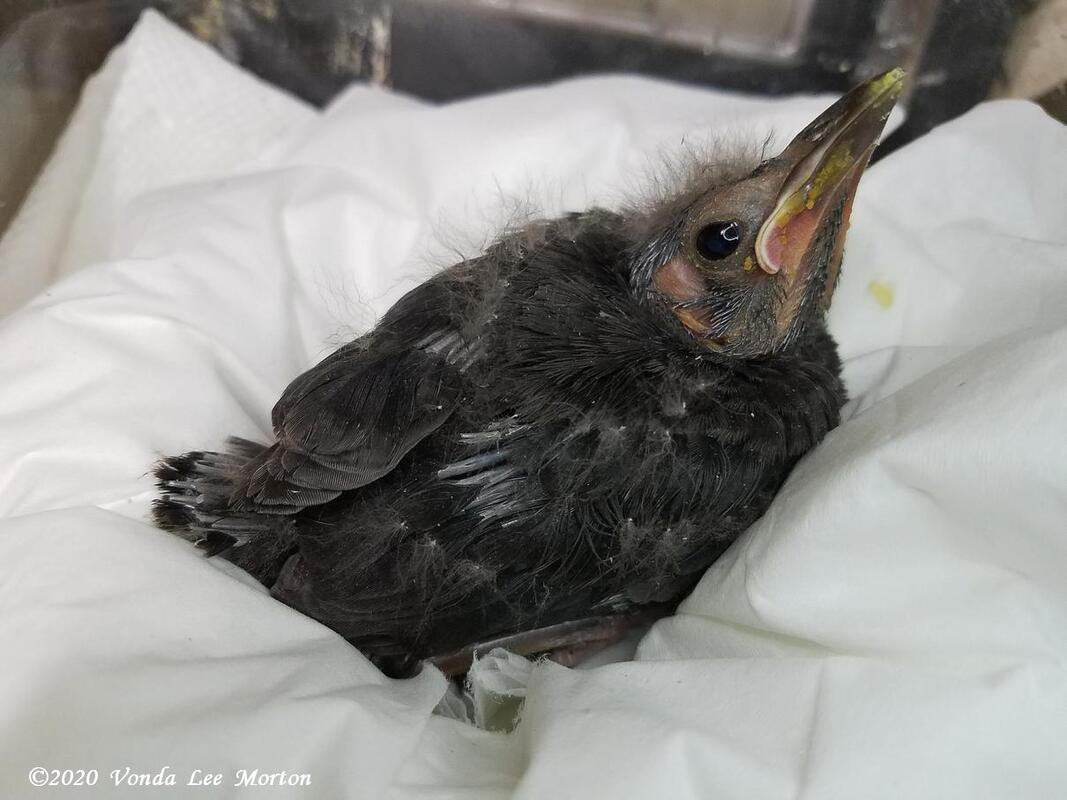
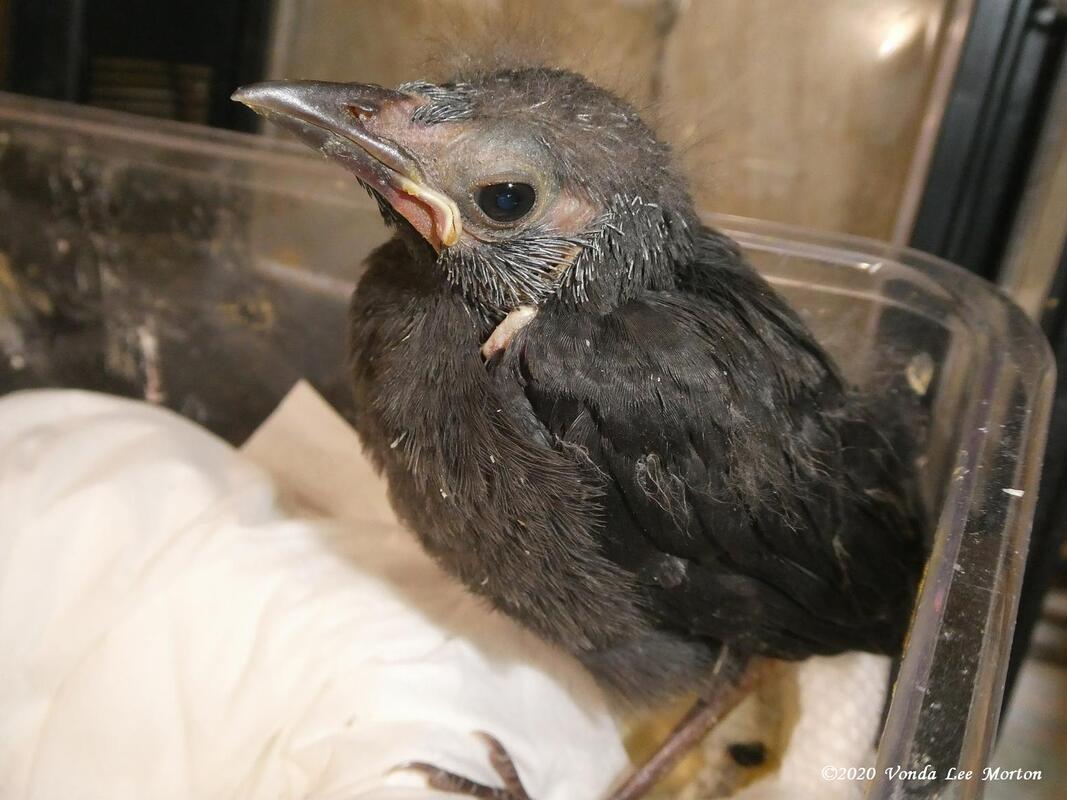
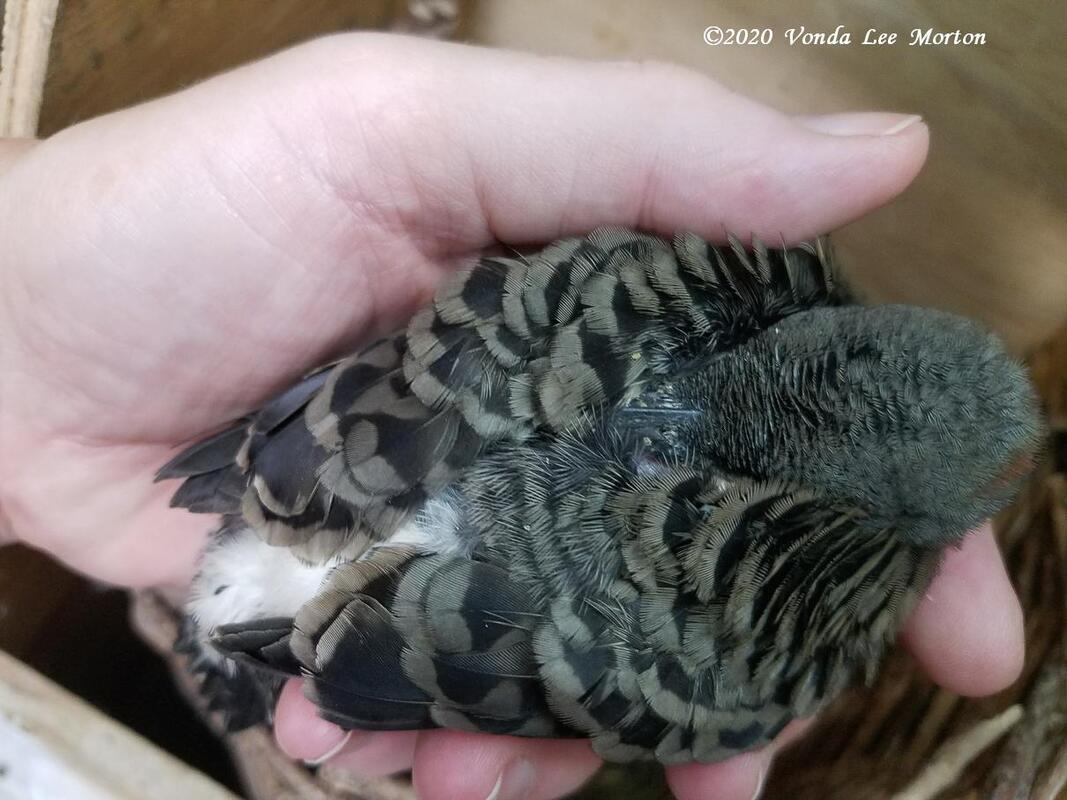
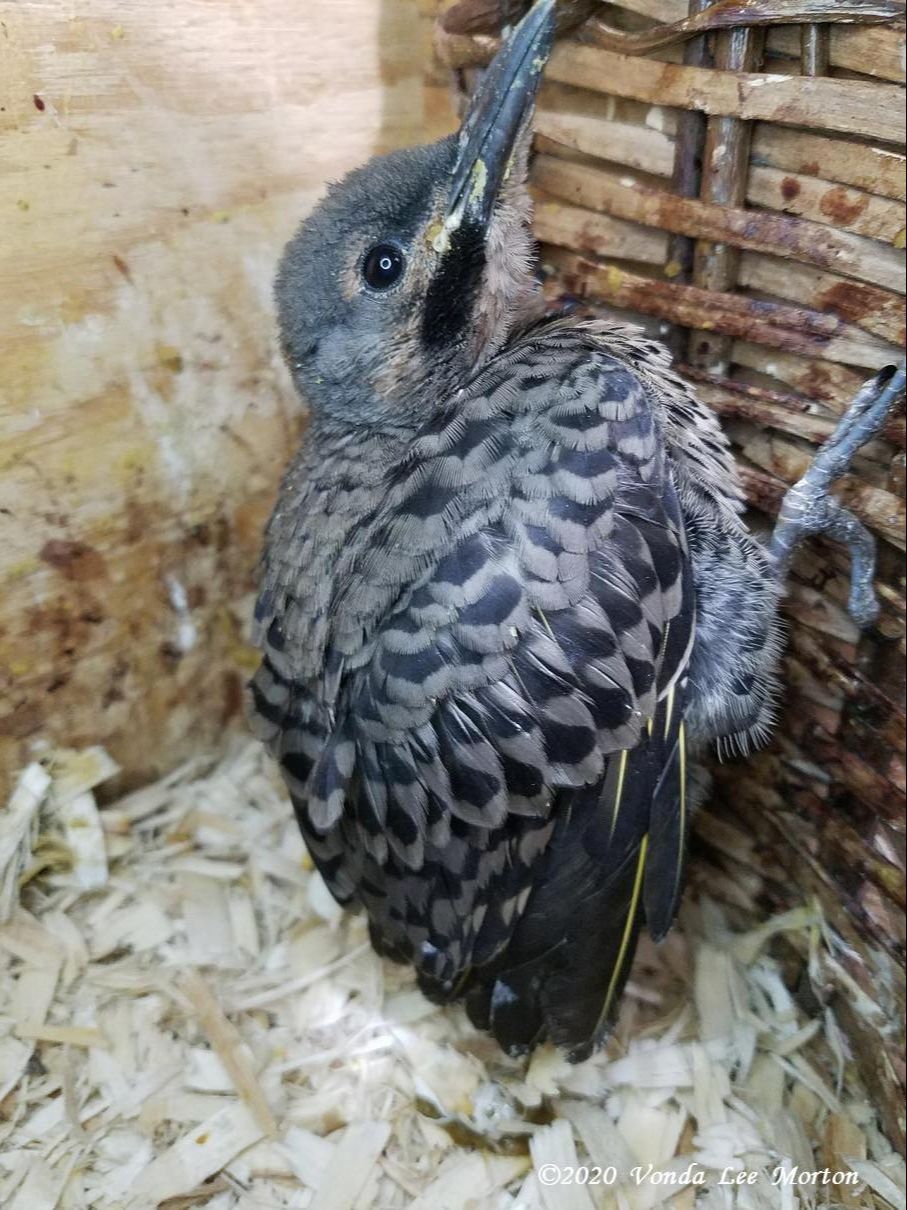
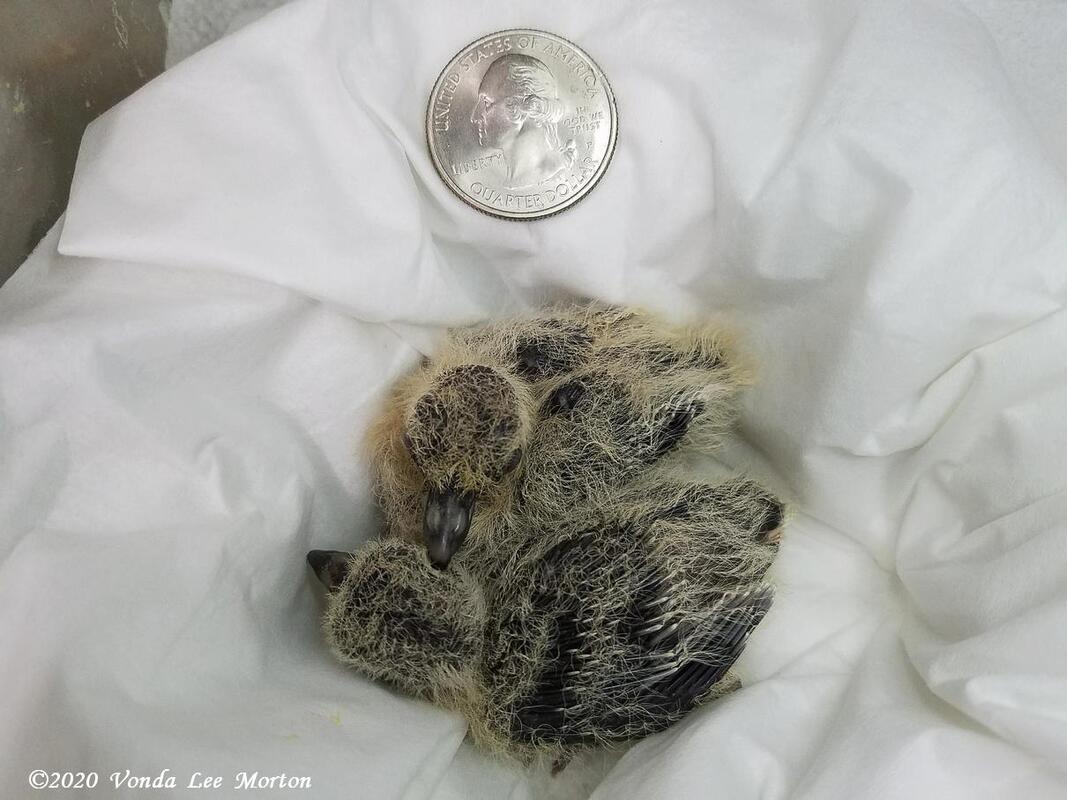
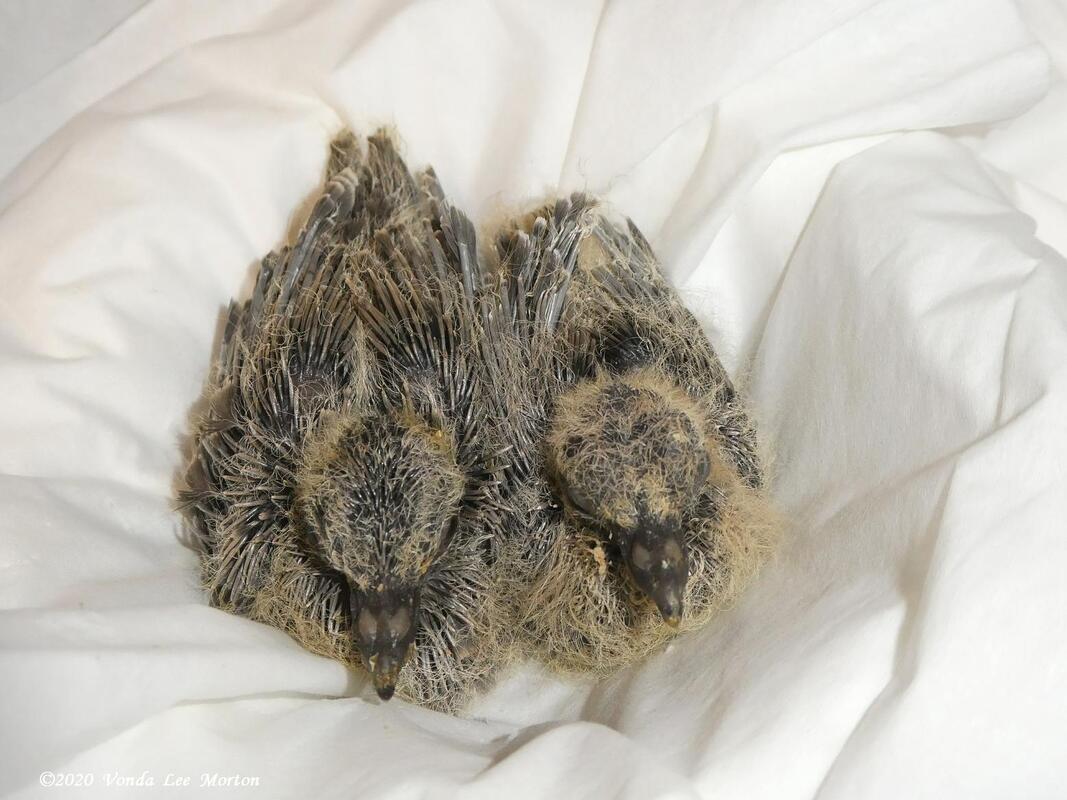
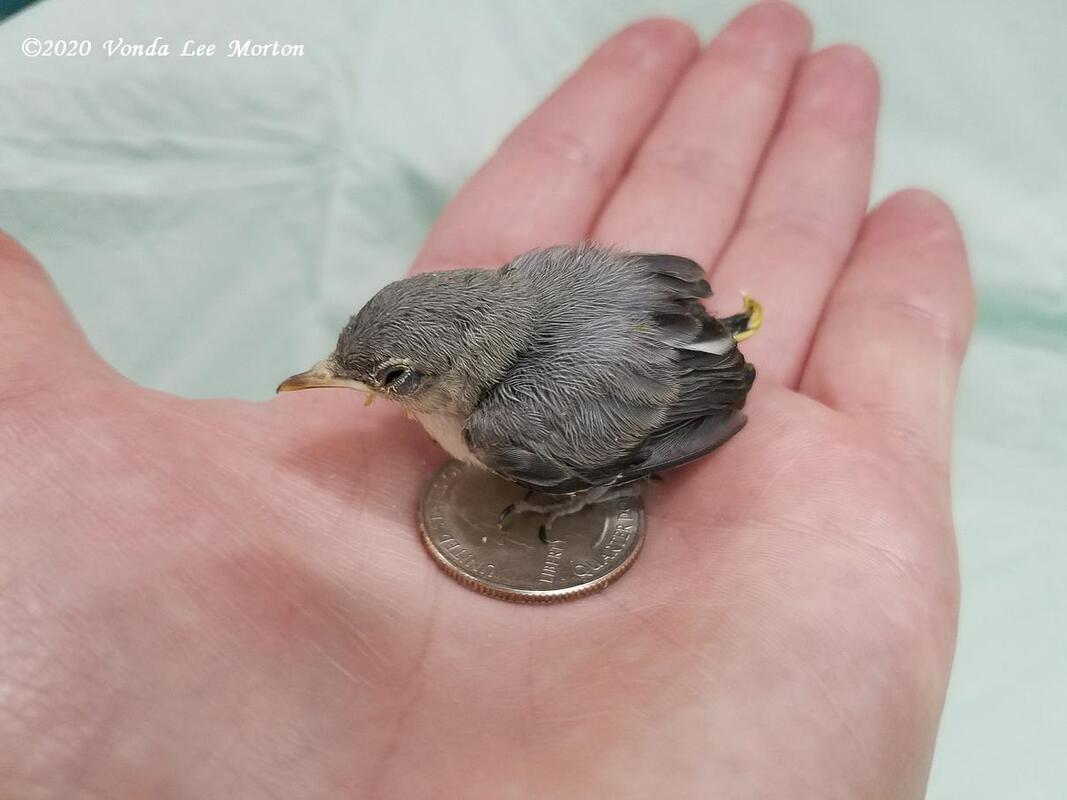
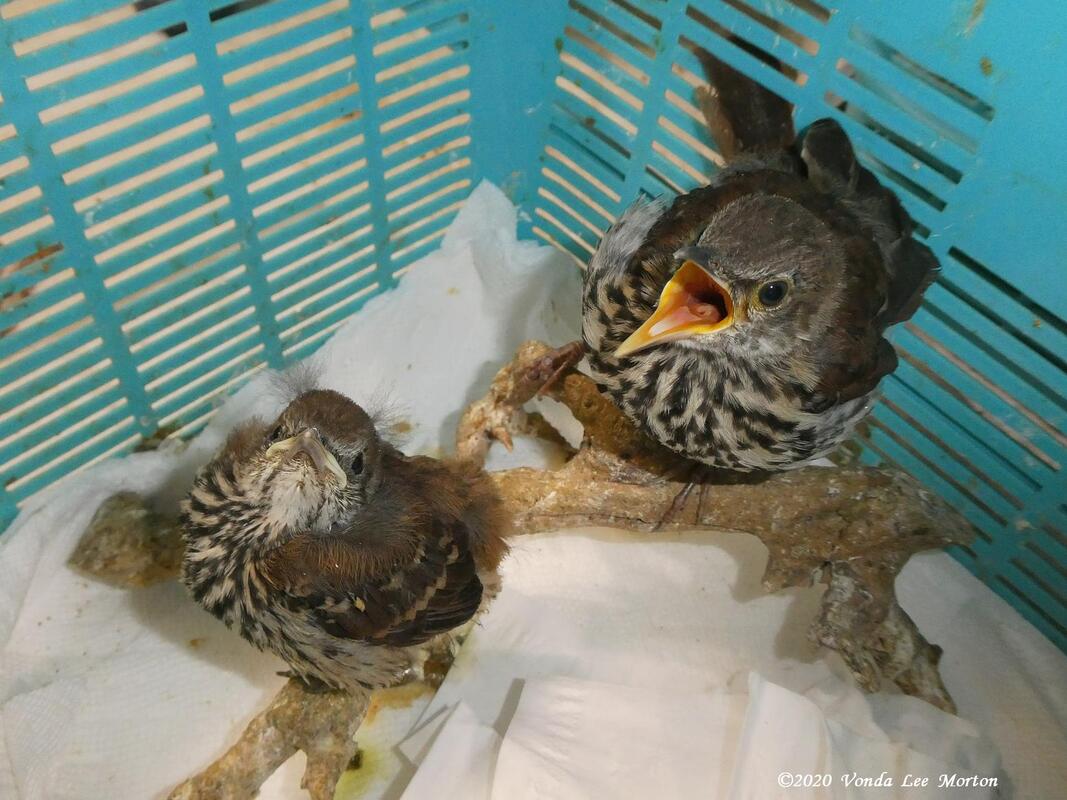
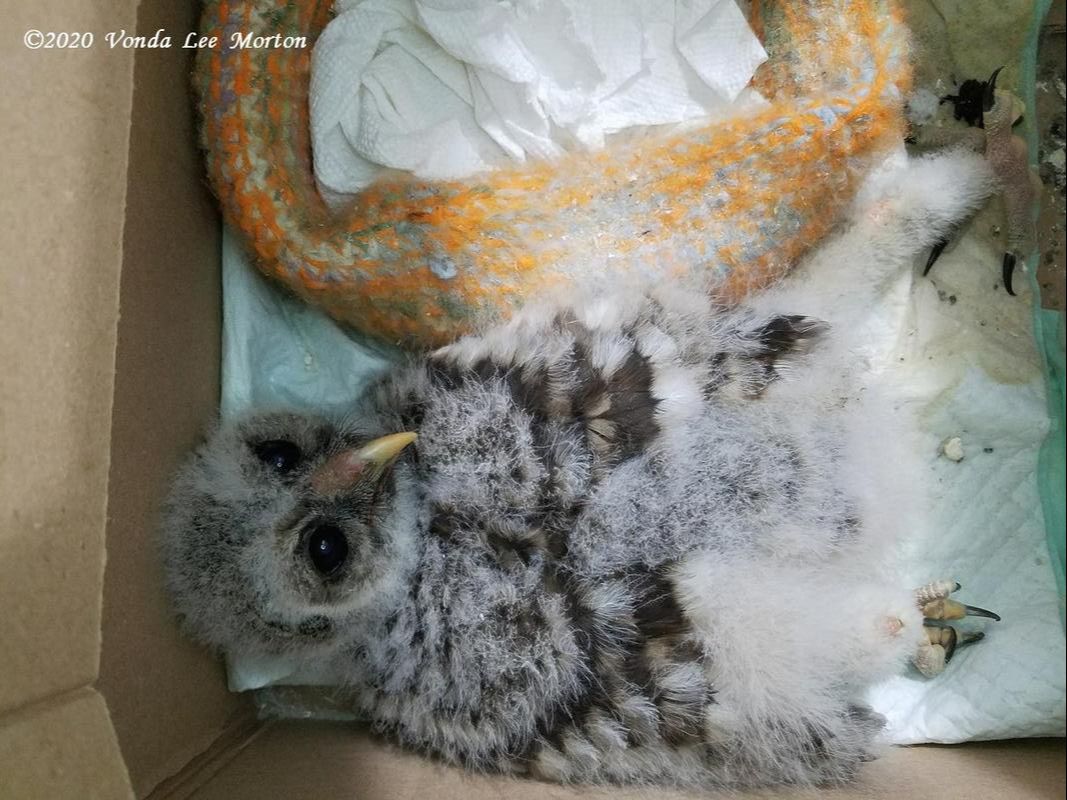
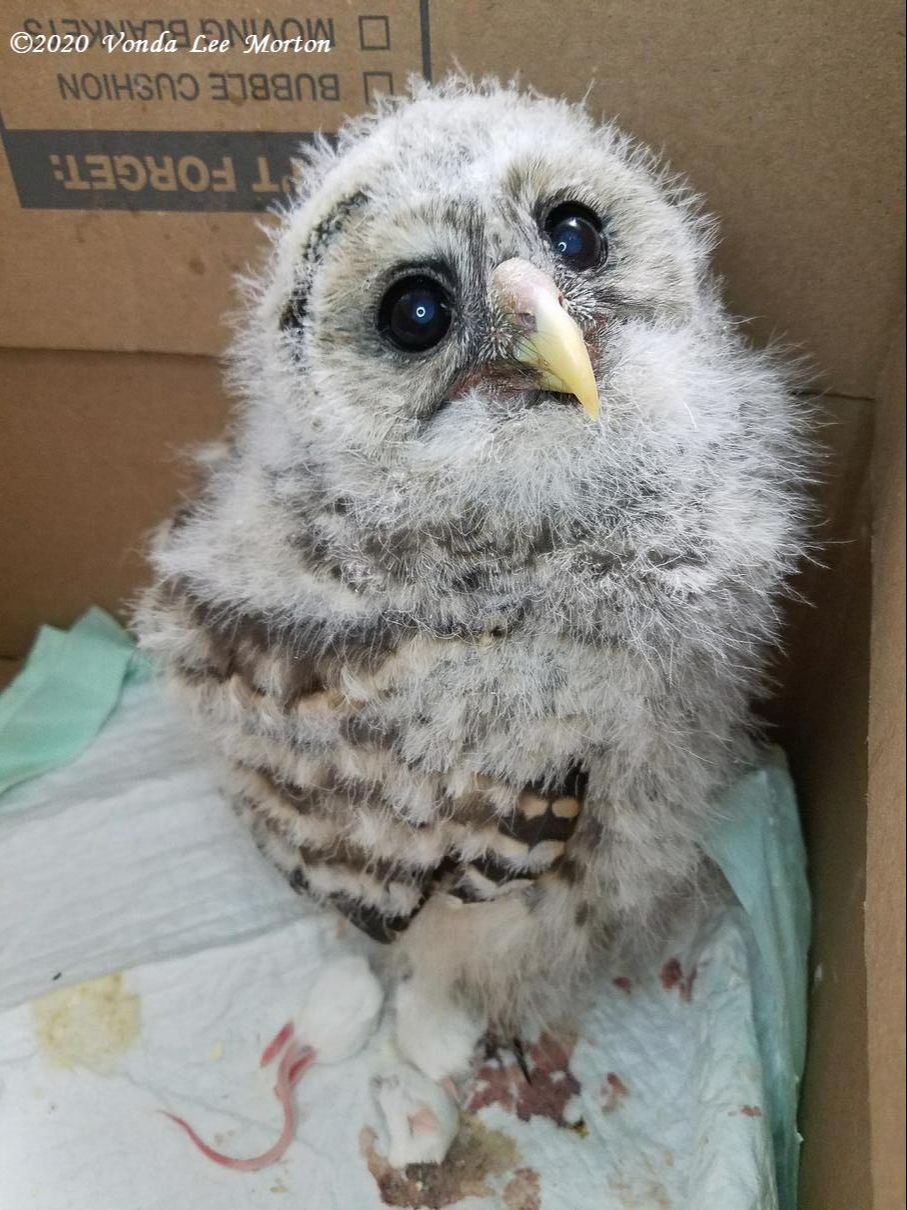
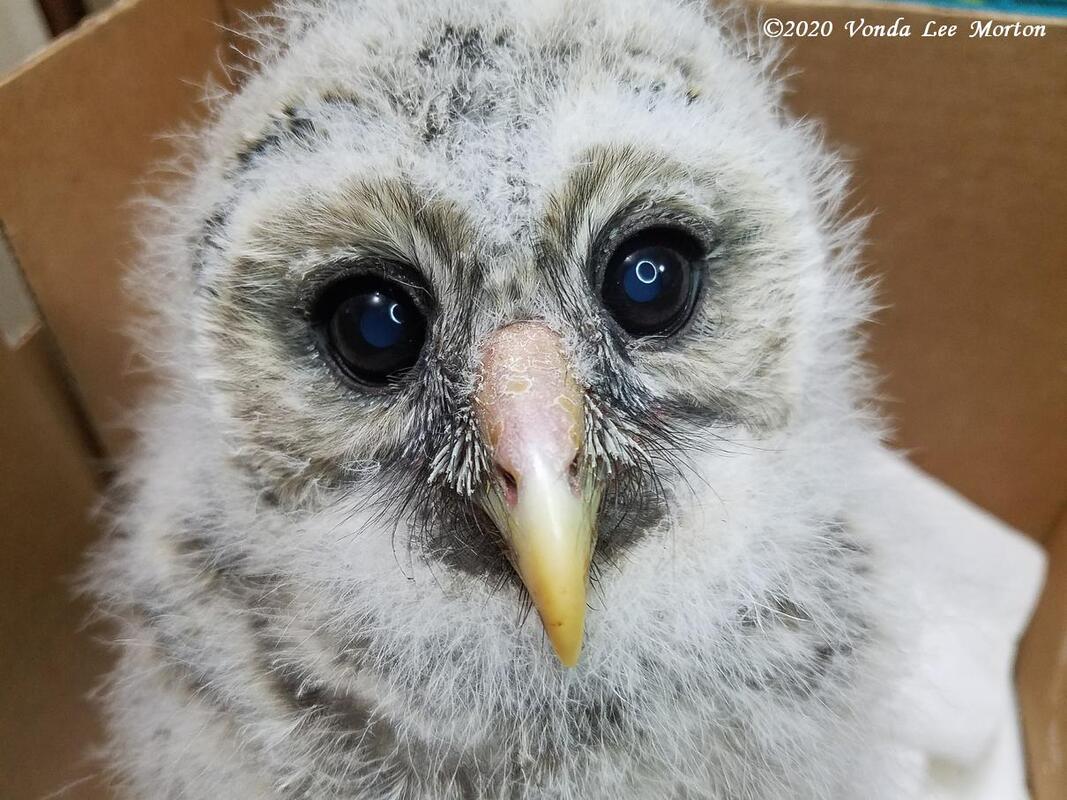
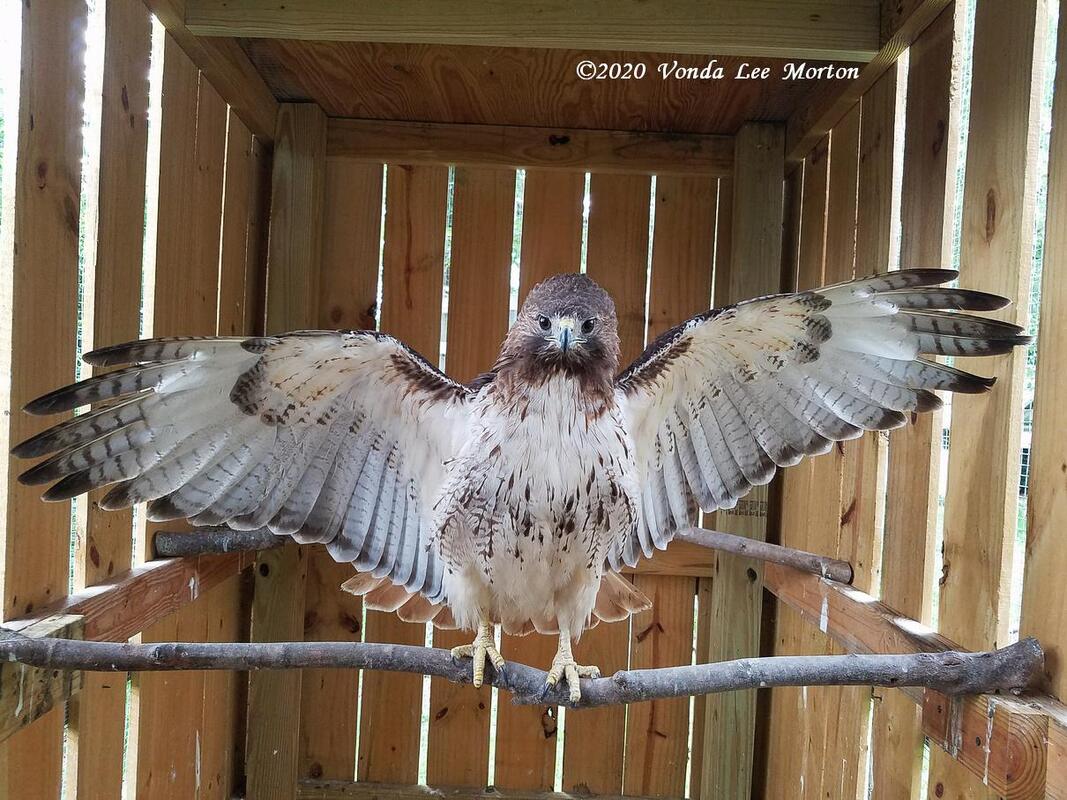
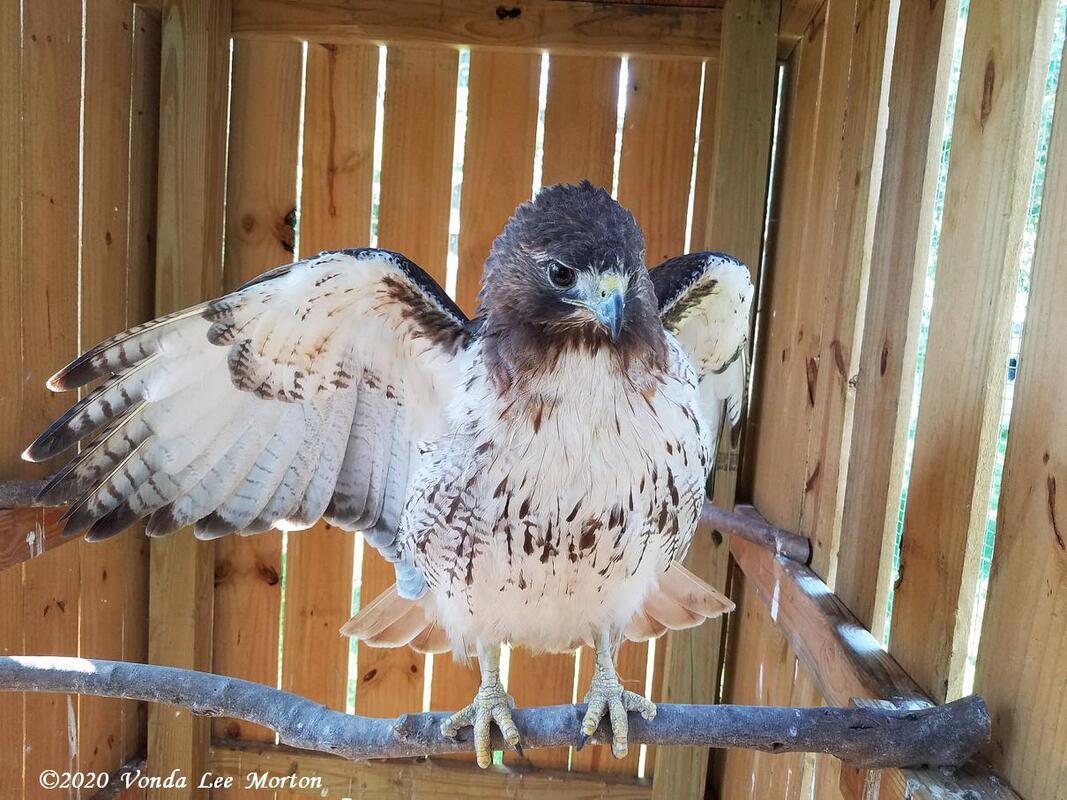
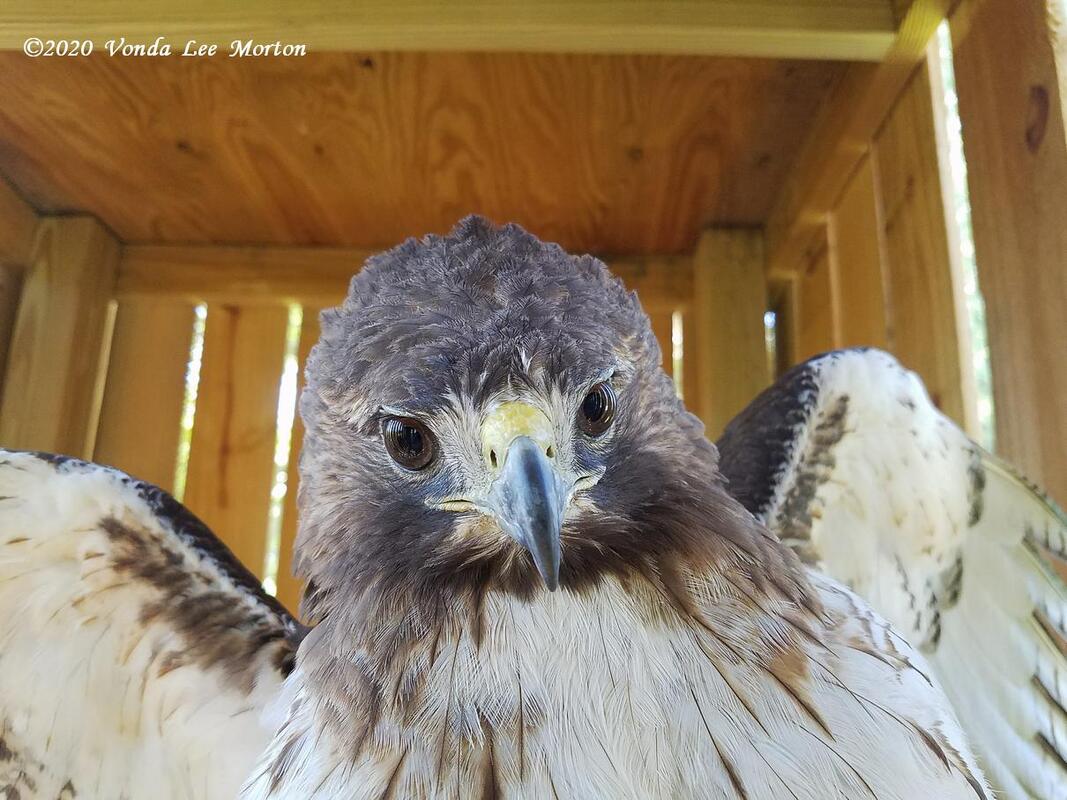
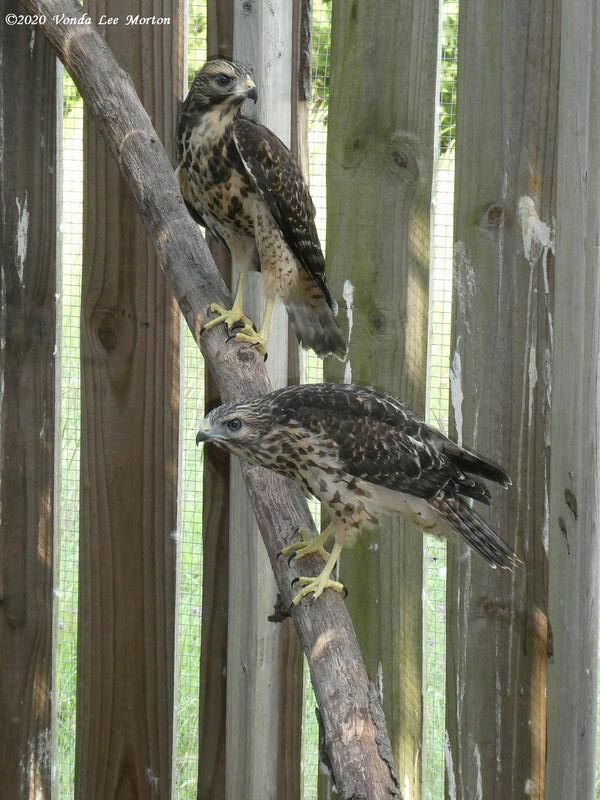
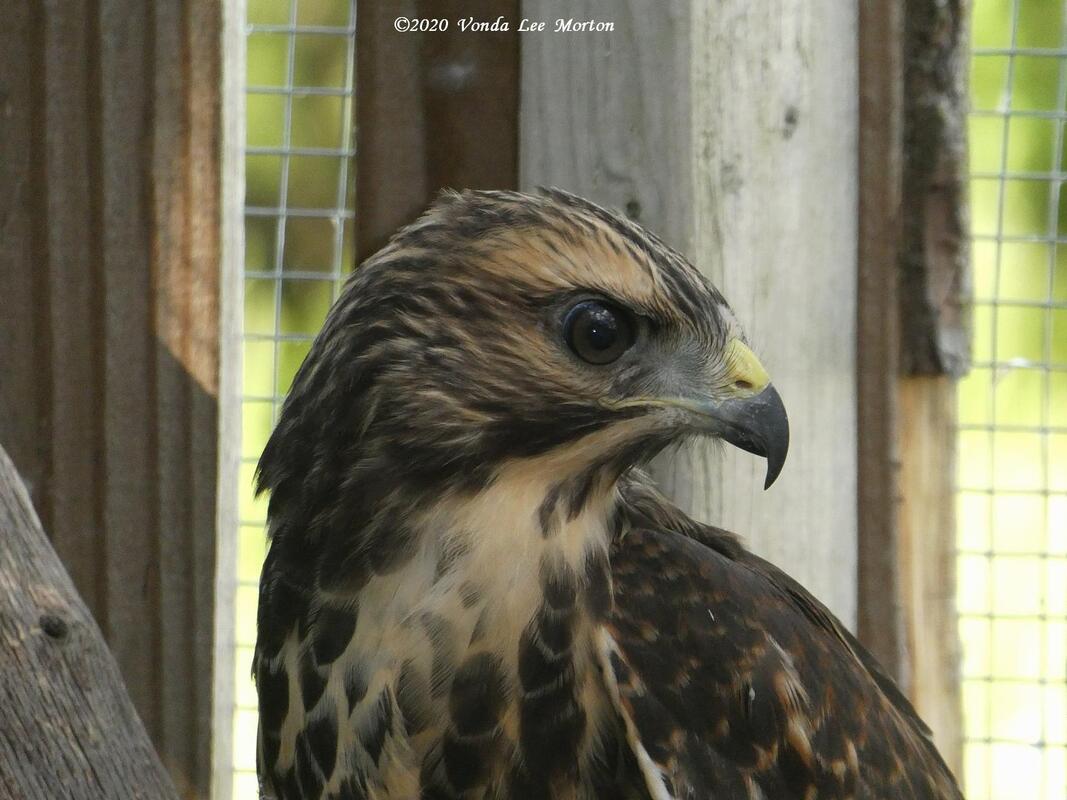
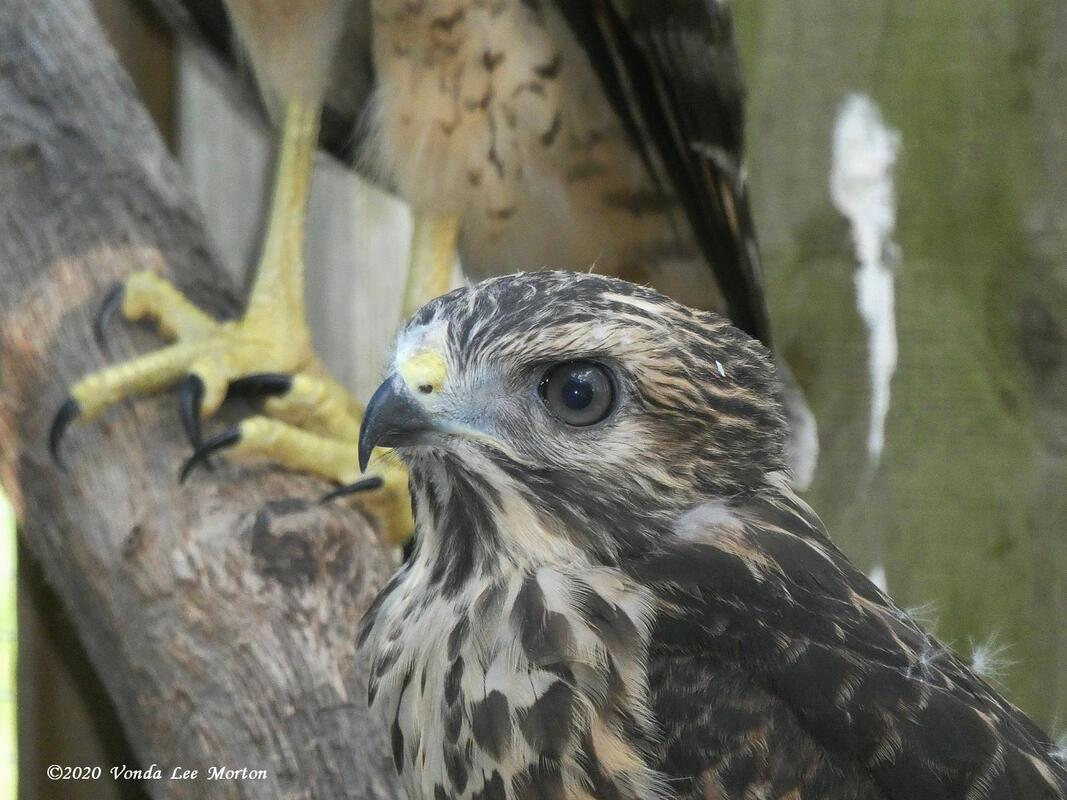
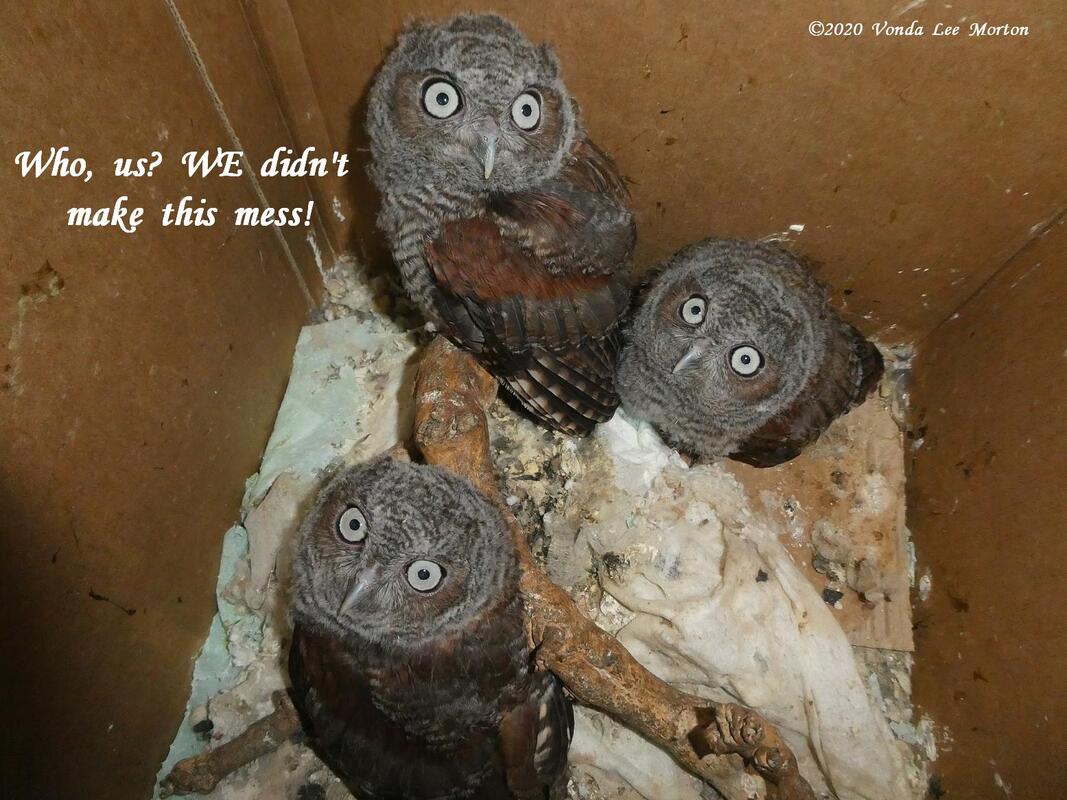
 RSS Feed
RSS Feed
